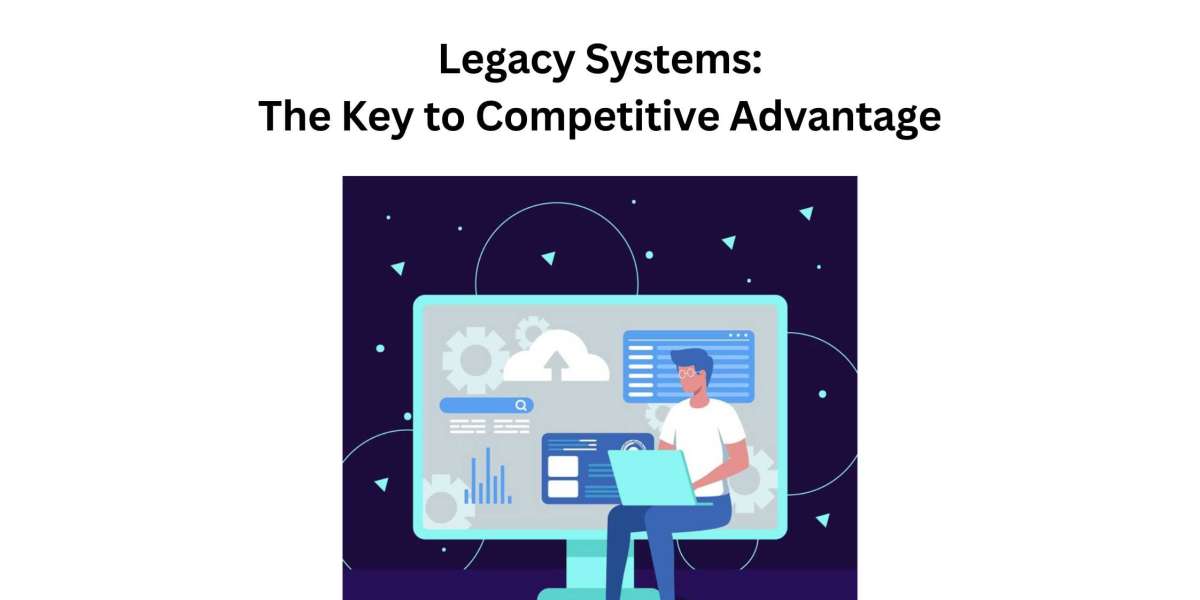Introduction: In today’s fast-paced technological landscape, organizations often perceive legacy systems as outdated and inefficient. However, it is time to challenge this conventional wisdom. IT Legacy systems, built on a foundation of reliability, stability, and institutional knowledge, can actually be the key to gaining a competitive advantage. This blog explores how legacy systems can provide unique benefits and unlock opportunities for organizations to thrive in the modern business landscape.
Unmatched Domain Expertise: Legacy systems are often deeply ingrained in an organization’s operations, reflecting years or even decades of industry-specific knowledge and insights. These systems are finely tuned to address the unique challenges and requirements of the business, making them a valuable repository of domain expertise. Leveraging this expertise can provide organizations with a competitive edge, as it enables them to make informed decisions, optimize processes, and deliver tailored solutions to customers.
Stability and Reliability: One of the hallmarks of legacy systems is their stability and reliability. These systems have a proven track record of supporting critical business functions, often serving as the backbone of operations for years. By maintaining and optimizing legacy systems, organizations can ensure uninterrupted and consistent service delivery to their customers, establishing a reputation for reliability that sets them apart from competitors. Reliability and stability contribute to customer trust and loyalty, key factors for long-term success.
Cost-Effectiveness: While legacy systems may require ongoing maintenance, they often operate at a lower cost compared to implementing entirely new systems. The initial investment in legacy systems has already been made, and organizations can continue to extract value from these systems by optimizing performance, enhancing security measures, and gradually modernizing specific components. This cost-effectiveness frees up resources that can be allocated to other strategic initiatives, providing a competitive advantage in terms of financial stability and flexibility.
Seamless Integration: Legacy systems have historically been built to integrate with other systems and processes within an organization. These systems often have well-established interfaces and integrations with other applications and platforms, allowing for seamless data exchange and interoperability. This integration capability provides organizations with the advantage of leveraging existing infrastructure and data assets while incorporating new technologies and innovations into their IT ecosystem.
Incremental Modernization: Rather than discarding legacy systems entirely, organizations can adopt an incremental modernization approach. This strategy allows for the preservation of the core functionality and value of legacy systems while gradually introducing new technologies and architectures. Incremental modernization minimizes disruption, reduces implementation risks, and maximizes the value derived from legacy systems.
Security and Compliance: Legacy systems, although built on older technologies, can still meet security and compliance requirements with the appropriate measures in place. By implementing robust cybersecurity measures, regular updates, and monitoring protocols, organizations can ensure the protection of sensitive data and compliance with industry regulations. This commitment to security and compliance enhances customer trust and strengthens the organization’s competitive position.
Conclusion: Contrary to popular belief, legacy systems hold a wealth of untapped potential that can provide organizations with a competitive advantage. The unmatched domain expertise, stability, reliability, cost-effectiveness, seamless integration, and the opportunity for incremental modernization are just a few of the benefits that legacy systems offer. By understanding and leveraging the strengths of legacy systems, organizations can harness their unique advantages to drive innovation, optimize processes, deliver exceptional customer experiences, and maintain a competitive edge in the ever-evolving business landscape. Embrace and optimize your legacy systems, and unlock the potential for sustained success and growth.
#avendata #legacysystems #legacysystem #itsystems #itlegacysystems








